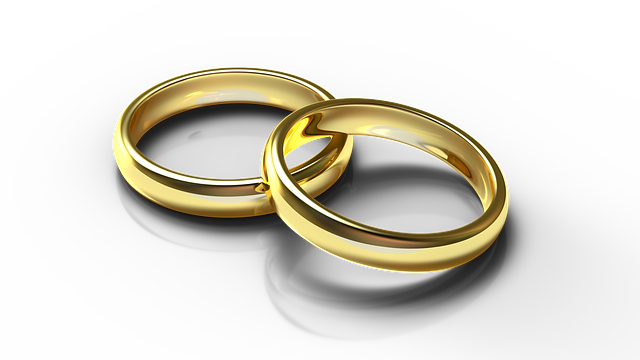The differences between marriage and civil partnership
 It has been almost 6 years since the UK government legalised same-sex marriage with the introduction of the Marriage (Same Sex Couples) Act 2013, which has since provided homosexual couples with the same rights that heterosexual couples have. This doesn't mean that civil partnerships no longer exist, because they do. It simply means that those in a same-sex relationship in the UK are now able to decide between marriage and civil partnerships - something that isn't currently offered to heterosexual couples, who are only able to marry.
It has been almost 6 years since the UK government legalised same-sex marriage with the introduction of the Marriage (Same Sex Couples) Act 2013, which has since provided homosexual couples with the same rights that heterosexual couples have. This doesn't mean that civil partnerships no longer exist, because they do. It simply means that those in a same-sex relationship in the UK are now able to decide between marriage and civil partnerships - something that isn't currently offered to heterosexual couples, who are only able to marry.
There is a lot of confusion surrounding the topic of same-sex marriage and civil partnerships, so hopefully we are able to outline the differences so that it's clearer to understand.
Marriage versus Civil Partnerships
When viewing these from a legal standpoint, each of these unions are very similar to each other. Civil partners have exactly the same legal right in many areas of the law, including:
- Child maintenance
- Parental responsibility
- Inheritance tax
- Life insurance recognition
- Next of kin rights
- Social security
- Tenancy rights
...and much more.
There are very few differences between marriage and civil partnerships from a legal perspective, apart from the fact that only homosexual couples are in a legal position to enter into civil partnerships.
Financial rights do have some slight variations, such as if one partner passes away then the surviving partner may receive a lower pension share than they would have had the couple been married instead.
As far as divorce and annulment of each type of relationship, the differences are marginal. One of the only main points of difference is that civil partnerships cannot be ended on the grounds of adultery, whereas marriages can.
Civil partnerships still exist
Same-sex couples have the choice of choosing between marriage and a civil partnership, both of which have been created to recognise the bond between two people. Though they ultimately represent a very similar thing, the ideas behind each relationship are very different.
Marriage is a historic institution that is celebrated across the world and is recognised as being legally binding. In contrast to this, a civil partnership is not legally recognised in many other countries, which can cause issues if a same-sex couple in a civil partnership has plans to emigrate or obtain marriage rights while abroad - this could happen in the case of an emergency, as an example.
This doesn't solely pose a problem for just civil partnerships, however, because the same type of restrictions can also apply on gay marriage in various countries. Some countries consider gay marriage to be at a similar level as civil partnerships, while other countries do not recognise gay marriage at all.
Many people view civil partnerships as a more modern approach to same-sex relationships, with more expressed equality rather than what's offered through a traditional marriage. Of course, this is down to personal opinion, but it's one of the main reasons civil partnerships do indeed still exist.
Can you convert a civil partnership into marriage?
Yes, it is possible for same-sex couples who are already in a civil partnership to easily change their relationship into a gay marriage either at a register office or any licenced wedding premises. There is a small fee for the marriage certificate and the original civil partnership certificate and ID will need to be presented to complete the conversion.
More information can be found on converting a civil partnership into a marriage over on the government website.
Protecting yourself financially
No matter what type of union you're entering, whether same-sex marriage, opposite-sex marriage or civil partnership, it is always a good idea to ensure you financially protect yourself with a prenuptial agreement. This can help protect your assets in the case of a divorce, annulment or dissolution further down the line.
These are called 'pre-civil partnership agreements' within a civil partnership, but work in the same way in that they separate the couple's assets and income and lay out plans as to what would happen to them should the relationship breakdown.
Though this may not be an easy conversation to have with your partner, it can go a long way to help avoid costly disputes and maintain an amicable relationship if a breakup did ever happen. A qualified family law solicitor can easily draft this up, offering peace of mind and a way to reduce the chances of a messy outcome if things fail to work out in the long run.
If you're looking for a solicitor to gain some valuable advice, or to help you make a claim, then get in touch with our team of highly qualified socilitors here at Fonseca Law today. We cover many different aspects of law, so we're sure to be in a great position to offer first-class assistance. Call us today on 01495 303124, e-mail enquiries@fonsecalaw.co.uk or fill in our online contact form.
